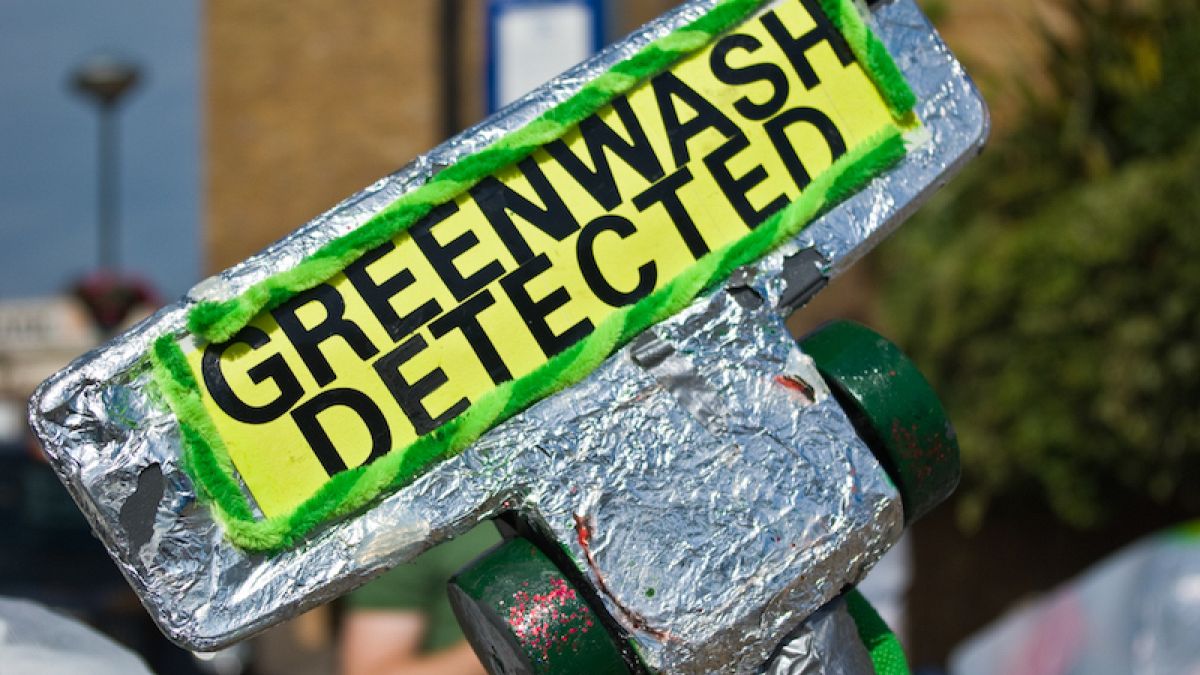Lawmakers are taking on the greenwashing fight to protect consumers, citizens and law-abiding businesses while NGOs are calling on EU countries to speed up the closure of the Green Claims Directive before the June elections.
Lawmakers backed tougher rules to punish greenwashing companies claiming to be “eco-friendly” or “less polluting”, after a vote in the European Parliament in Strasbourg today (March 12).
The report adopted in plenary today was prepared by the internal market and environment committees, building on the EU executive’s proposal for a Directive on Green Claims tabled in March last year, and established that non-compliant companies may face penalties, including temporary bars from public procurement tenders and fines worth at least 4% of annual revenue.
Companies will be obliged to submit their green claims for verification before being allowed to sell a product under such labels, MEPs overwhelmingly agreed today with 467 votes in favour and 65 against.
Lawmaker Andrus Ansip (Estonia/Renew) co-leading the legislative file alongside Cyrus Engerer (Malta/S&D), cited studies showing that over 50% of environmental claims are “vague, misleading or unfounded”.
“We cannot talk about a level playing field for our entrepreneurs while some traders are cheating,” said Ansip.
Lawmaker Engerer said the upcoming law will ensure businesses have the “right tools to embrace genuine sustainability practices” set by the obligation to “scientifically verify” companies offering products or services under green claims.
MEPs have targeted in particular the practice of using so-called offsetting schemes by firms to back up claims to be climate friendly or climate neutral – a strategy behind many of the ‘net-zero’ deadlines adopted by companies as diverse as software developers and petroleum producers.
The parliament's position is that companies will only be able to use such schemes, when accredited by a third party, to address 'residual' emissions – that is, unavoidable greenhouse gas output that remains after all viable means of reducing actual emissions have been exhausted.
Under a last-minute amendment, the European Commission would be given one year after the entry into force of the new directive to produce, with the European Scientific Advisory Board on Climate Change, a coherent methodology to define what emissions can be considered residual.
Dimitri Vergne, team leader of The European Consumer Organisation’s (BEUC) sustainability team, welcomed the agreement across the political spectrum at a time when green files are “at the centre of fierce political battles”.
“The vote outcome is a win for consumers. It’s simple from now on: no proof, no green claims,” said Vergne.
Margaux Le Gallou, programme manager at ECOS - Environmental Coalition on Standards, urged EU policymakers and member states to finalise this legislative file before the EU elections being held between 6 and 9 June, as the file is set to be taken up by the new parliament.
“Europe desperately needs rules to prevent misleading environmental claims and support consumers and sustainable businesses, instead of companies that make false promises – this directive could be it,” said Le Gallou.
Subscribe here to stay informed on the latest EU policy developments with our weekly newsletter, “The Policy Briefing”. Your weekly insight on European rulemaking, policy issues, key events, and data trends.



